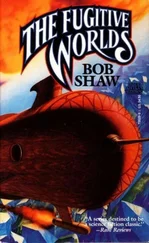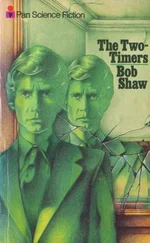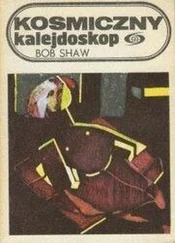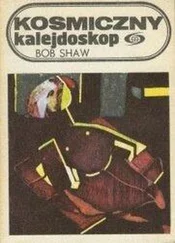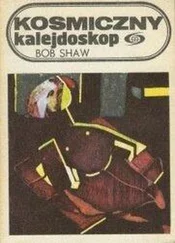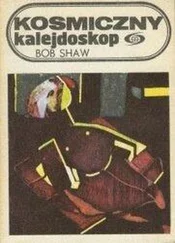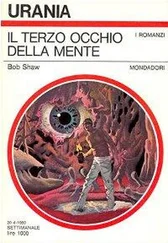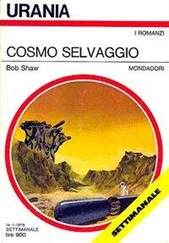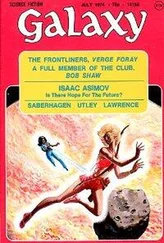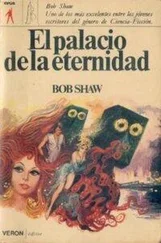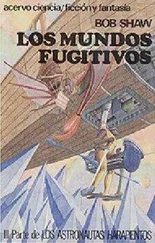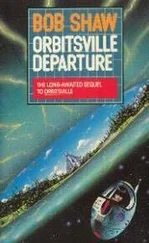“I didn’t know Lloyd was dead.”
“I can’t take it myself yet.” Hasson stared at the road ahead, which was like a black canal banked with snow. “One of the gang was the son of a mob chief who was buying up respectability as if it was developed land, and the boy was carrying papers which were going to wipe out his old man’s investment. It’s a long story, and complicated …” Hasson, tired of talking, hoped he had said enough to satisfy Werry’s professional curiosity.
“Okay, let’s forget all that sort of stuff, cousin.” Werry smiled and gave Hasson an exaggerated wink. “All I want is for you to relax and get yourself built up again. You’re goin” to have the time of your life in the next three months. Believe me.”
“I do.” Hasson glanced discreetly, gratefully, at his new companion. Werry’s body was hard and flat, with a buoyant curvature to the muscles which suggested a natural strength carefully maintained by exercise. He seemed to take an ingenuous pleasure in the perfection of his uniform, something which combined with his Latin-American looks to give him the aura of a swaggering young colonel in a revolutionary republic. Even his handling of the car — slightly aggressive, slightly flamboyant — spoke of a man who was perfectly at home in his environment, taking up its challenges with a zestful confidence. Hasson, envious of the other man’s intact and gleaming psychological armour, wondered how it had been possible for him to forget his first meeting with Werry.
“By the way,” Werry said, “I didn’t tell the folks at home — that’s May and Ginny, and my boy Theo — anything about you. Anything apart from the official story, that is. Thought it better just to keep things to ourselves. It’s simpler that way.”
“You’re probably right.” Hasson mulled over the new information for a moment. “Didn’t your wife think it a bit odd when you produced a brand-new cousin out of thin air?”
“May isn’t my wife — not yet anyway. Sybil left me about a year ago, May and her mother only moved in last month, so it’s all right — I could have cousins all over the world, for all they know.”
“I see.” Hasson felt a throb of unease at the prospect of having to meet and cohabit with three more strangers, and it came to him once again that he had joined the ranks of life’s walking wounded. The car was now speeding along a straight highway which cut through immensities of sun-blinding snow. He fumbled in his breast pocket, produced a pair of darkened glasses and put them on, glad of the barrier they set up against the pressures of an unmanageable universe. He shifted to an easier position in his seat, cradling the unwanted bottle of whisky, and tried to come to terms with the new Robert Hasson.
The deceptively commonplace term “nervous breakdown’, he had discovered, was a catch-all for a host of devasting mental and physical symptoms — but the knowledge that he was suffering from a classical and curable illness did nothing to alleviate those symptoms. No matter how often he told himself he would be back to normal in the not too distant future, his depressions and fears remained implacable enemies, swift to strike, tenacious, slow to relinquish their grip. In his own case, he appeared to have regressed emotionally to relive the turmoils of adolescence.
His father, Desmond Hasson, had been a West Country village storekeeper driven by circumstances to work in the city, and had never even begun to adapt to his new surroundings. Naive, awkward, pathologically shy, he had lived out the life of a hopeless exile a mere two hundred kilometres from his birthplace, bound by the rigidity of his outlook, always whispering when in public lest the difference in his accent should draw curious glances. His marriage to a tough-minded city girl had served only to let the incomprehensible strangeness of the world of factories and office blocks invade his home, and he had become perpetually reserved and uncommunicative. It had come as a bitter disappointment to him to find that his son responded naturally and easily to an ur- ban environment, and for some years he had done his best to correct what he regarded as a serious character defect. There had been the long, uninformative walks in the country (Desmond Hasson knew surprisingly little about the world of nature he espoused); the futile hours of fishing in polluted streams; the boredom of enforced labour in a vegetable garden. Young Rob Hasson had disliked all of those things, but the real psychological marks had been caused by his father’s attempts to mould his essential nature.
He had been a gregarious boy, not averse to speaking his mind, and the worst personality conflicts had arisen from this fact. Time after time he had been quelled, humbled, desolated by the admonition — always delivered in a shocked and betrayed undertone — that a proposed course of action would cause people to look at him. He had grown up with the implanted conviction that the most scandalous thing he could ever do would be to draw the attention of others in public. There had been other strictures, notably those concerned with sex, but the principal one, the one which clung longest and made life most difficult, had been that concerning the need for self-effacement. Even as a young adult, at college and during a brief spell in the army, each time he had been called upon to get up on his feet and address any kind of assembly he had been plagued and undermined by visions of panic-stricken blue eyes and by the parental voice whispering, “Everybody will look at you!”
Hasson had eventually broken the conditioning, and — with his father long dead — had thought himself free of it for ever, but the impact of nervous illness appeared to have shattered his adult character like a glass figurine. It was as if his father had begun to achieve a posthumous victory, recreating himself in his only son. He found it intensely difficult to sustain any kind of a conversation, and the thought of having to enter a house of strangers filled him with a cool dread. Hasson stared sombrely at the unfolding alien snowscapes and yearned desperately to be back in his two-roomed flat in Warwick, with the door locked and the undemanding companionship of a television set for solace.
Al Werry, as though sensing his need, remained silent in the following hour except for the passing on of scraps of information about local geography. In between times, the police radio made occasional popping and growling noises, but no calls came through on it. Hasson took the opportunity to recharge his spiritual batteries and was feeling slightly more competent when a tangle of pale-glowing aerial sculptures appeared above the horizon, letting him know they were drawing close to Tripletree. He was taking in the broad outlines of the traffic control system when his eye was caught by the silhouette of a peculiar structure close to the city, stark against the background of luminous pastels. From the distance it resembled a monstrous, single-stemmed flower, grown to a height of perhaps four hundred metres. He speculated briefly about its purpose, then turned to Werry.
“What’s that thing?” he said. “It can’t be a water tower, or can it?”
“There’s nothing wrong with your eyes, Rob.” Werry spent a few seconds staring straight ahead, satisfying himself that he too could see the object clearly. “That’s our local landmark, Morlacher’s Folly — otherwise known as the Chinook Hotel.”
“Strange architecture for a hotel.”
“Yeah, but not as strange as you would think. You know what a chinook is?”
“A warm breeze you get in the wintertime.”
“That’s right, except that we don’t always get it. Around here it has a habit of streaming over us at a height of a hundred or two hundred metres. Sometimes as low as fifty. It can be ten below zero at ground level, so we’re going around freezing, and up there the bird’s are sunbathing at ten and fifteen degrees above. That’s what was in old Harry Morlacher’s mind when he built the hotel — the residential part is right up there in the warm air stream. It was meant to be a high-priced R R spot for oil execs from all over Athabasca.”
Читать дальше

